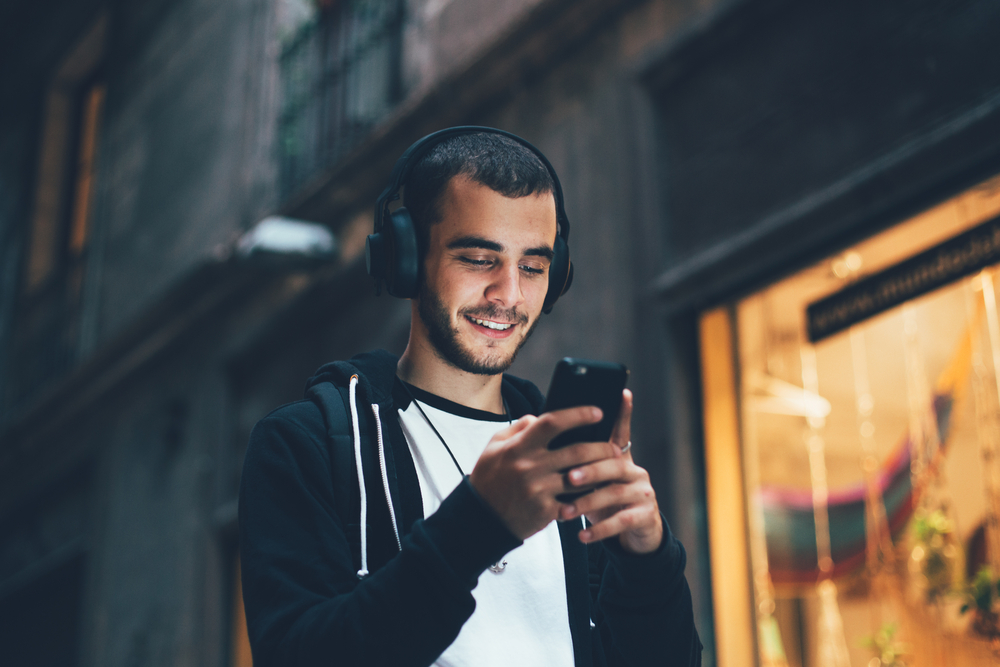James is a music enthusiast who has excelled in the art of incorporating his favorite music into his day-to-day life, effortlessly shifting from Spotify at his desk to Pandora on his runs, and carefully crafting playlists to beautifully enhance every activity, whether he’s working out, cooking a meal, or immersed in a gaming session. His headphones are his constant companions, converting his life into a completely soundtracked experience. James takes comfort and joy in the captivating realm of music, but the very source of his joy might be harming his cherished ability to hear without him realizing it.
There are safe ways to appreciate music and ways that are more risky to your hearing health. Sadly, many of us tend to incline towards the latter.
What is the relationship between extended exposure to music and hearing damage?
As time pass, loud noises can bring about degeneration of your ability to hear. We’re used to thinking of hearing loss as a problem related to growing old, but more and more research reveals that it’s really the build-up of noise-related damage that is the issue here and not anything inherent in the process of aging.
It also turns out that younger ears are especially susceptible to noise-related damage (they’re still forming, after all). However, teenagers tend to disregard the possible dangers of excessive noise over time. So there’s an epidemic of younger people with hearing loss, thanks, in part, to rampant high-volume headphone usage.
Is it possible to enjoy music safely?
Unlimited full volume is obviously the” hazardous” way to listen to music. There is a way to listen to music more safely, which typically means lowering the volume. The recommended safe volume levels are normally as follows:
- Adults should restrict their device listening time to 40 hours or less and ensure the volume stays below 80 dB.
- For Teens and Minors: You can still listen for 40 hours, but keep the volume level lower than 75 dB.
Breaking it down, you’re looking at about 5 hours and 40 minutes of listening each day. That seems like a lot, but it can go by rather quickly. In spite of this, most individuals have a well-developed understanding of time management, a skill that is generally perfected during early childhood.
The more challenging part is monitoring your volume. On most smart devices, computers, and televisions, volume is not measured in decibels. Its value is established utilizing a somewhat subjective or relative scale. The range could be as broad as 1 to 100, or it could be as small as 1 to 16. You may be unaware of the maximum volume capacity of your device or how near you are to reaching that limit.
Tips for effectively keeping track of your music volume
Several free noise monitoring apps can be downloaded for both iPhone and Android devices to tackle this problem. These apps offer immediate feedback on surrounding noise levels, allowing users to fine-tune their listening volume to safe levels.
Because of this, many audiologists suggest utilizing one of the numerous noise level monitoring applications available at no cost. These apps– widely available for both iPhone and Android devices– will give you real-time readouts on the noises around you. In this manner, you can keep track of the decibel level of your music as it plays and make changes accordingly.
Comparing relative volumes: from garbage disposals to dishwasher
For instance, a noise level of 80 decibels is comparable to the sound generated by a common garbage disposal or dishwasher – you can hear them, but they won’t blow your ears out. Recognizing this benchmark is crucial, as it represents the limit beyond which auditory damage becomes a substantial hazard.
So, being extra vigilant when exceeding this decibel limit is important. Consider reducing exposure to overly loud music by enjoying certain tracks at full volume rather than indulging in complete albums.
Recurring exposure to increased volume levels can result in hearing problems including tinnitus and eventual hearing loss. By being mindful of when our ears venture into the danger zone, we empower ourselves to make educated choices, with the ultimate goal of fostering safer listening practices.
Schedule a hearing test
For better prioritization of your hearing health, it is recommended to consult a hearing specialist to book a comprehensive hearing test. Taking practical steps like regular screenings can pinpoint possible issues at an early stage, enabling prompt actions and tailored advice to protect your valuable hearing.

